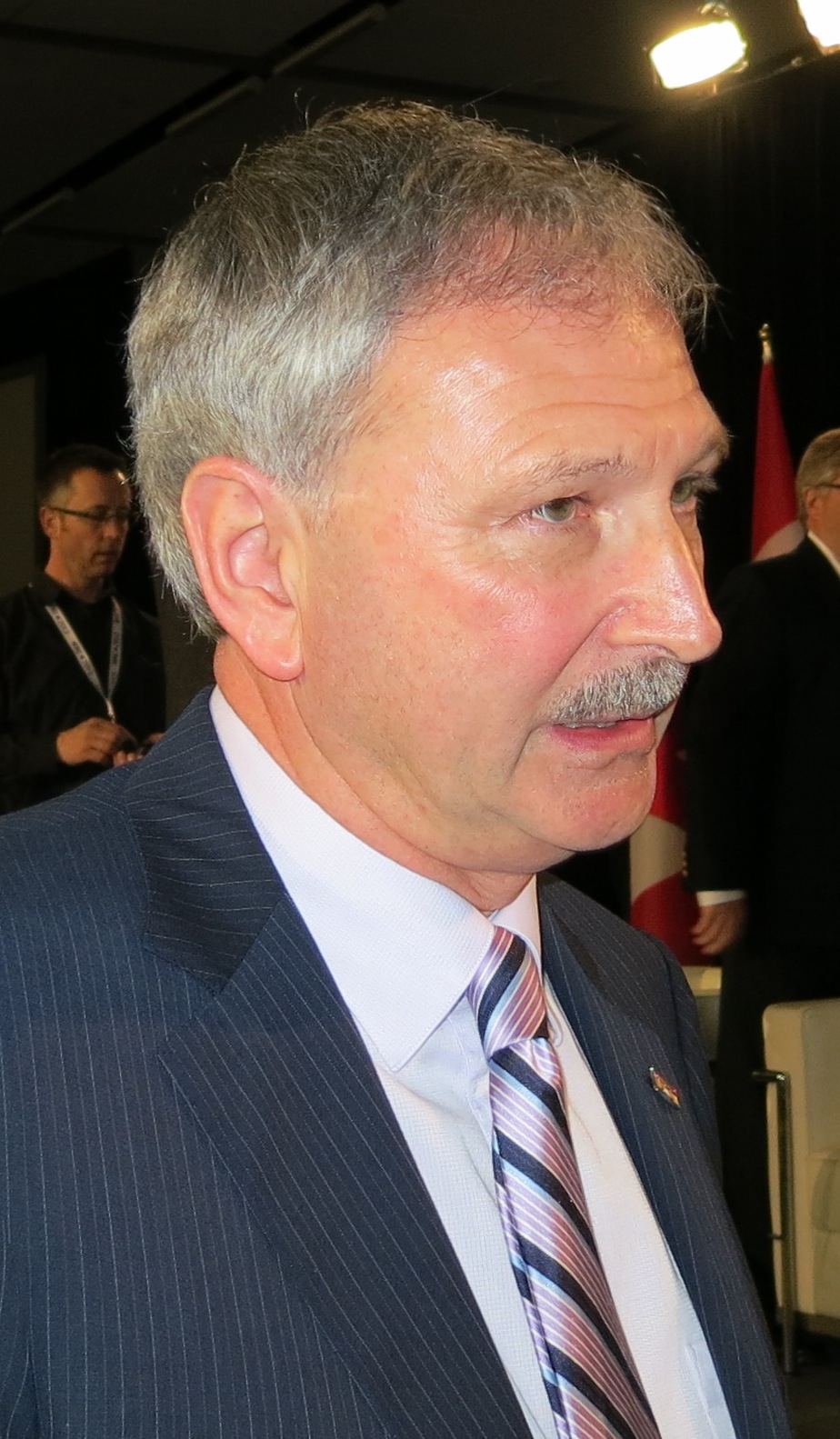When they weren’t imaging the end of the world in a fiscal holocaust brought on by Keynesianism or worrying about the political end of the world caused by Liberal Dauphin Justin Trudeau’s political talents or banished neoconservative hero Tom Flanagan’s embarrassing shenanigans, conservative “big thinkers” at the Manning Centre’s conference March 7-9 in Ottawa were demonstrating a remarkable tolerance for cognitive dissonance.
Leastways, the obvious differences between the current policies of Prime Minister Stephen Harper’s Conservative government and the prevailing “libertarian” views of the majority of conference participants seemed remarkably un-troubling to the conservatives in conclave.
They could seemingly greet Tea Party icon Ron Paul’s calls for distilled economic market fundamentalism and an end to the “war on drugs” with equal enthusiasm — ideas to which, we have to admit, there is a certain consistency, although the drugs position is unlikely to generate much warmth behind the doors of the Prime Minister’s Office.
They could wail with equal passion against human rights commissions that supposedly restrict their free speech and shout down questioners at a session on foreign policy who showed insufficient ardour for the cause of Israel.
Nevertheless, certain themes clearly emerged during the meeting that show what the Canadian right is worrying about, and what they propose to do about it.
‘Green Conservatism’
A major theme of conference discussions was the perceived and measurable weakness of conservatives with Canadian voters on environmental issues — which according to the Manning Centre’s polling and that of other groups is a top-of-mind issue for many Canadians.
Conservative opinion surveys — like the polling done by the rest of us — shows that Canadians trust the Harper government to manage the economy, but deeply distrust it on protecting the environment.
Preston Manning, godfather of the Reform/Conservative Party and titular head of the generously corporate funded Manning Centre, gave two key speeches that emphasized the need of conservatives (and Conservatives) to appear green to voters.
No doubt Manning would dismiss this description as an excessively cynical interpretation of his beliefs. He hailed the ranchers of Alberta’s Eastern Slopes as true conservationists, the better to graze more cattle, and no doubt thinks of himself as being truly green in a market fundamentalist, property-rights-obsessed sort of way.
Nevertheless, it is said here we are talking pure AstroTurf, without much genuine commitment to the environmental future of the planet — at least where that conflicts with “property rights,” pipeline projects and the right to amass huge fortunes in a few hands.
Former Medicine Hat MP and Harper Cabinet member Monte Solberg was trotted out as the leader of a new conservative environmental group — Conservation Works Canada — that is certain to be as bogus as the six-member Canadian Taxpayers Association.
Clearly Canadian conservatives have identified the environment as a potentially fatal weak point — and they are going to work hard to resolve that in a way that is consistent with pipeline expansion and continued holus-bolus exploitation of non-renewable resources.
Pipelines & Energy
And speaking of pipelines, it’s clear the most creative minds in Canadian conservatism are applying their brainpower to moving forward pipeline projects — extending from Alberta, the centre of their political and economic universe, to all points of the compass.
The common Canadian skepticism about the Harper government’s commitment to the environment presents a serious problem for this project, especially in British Columbia along the route of the proposed Northern Gateway pipeline.
As a result, it was soon apparent, Canadian conservatives and their corporate partners are developing new strategies for marketing the supposed need to export Alberta’s bitumen resources as quickly as possible. The target of this campaign, of course, is Canadian voters generally, but especially those B.C. residents who distrust the energy industry’s pipeline safety promises.
A session on the “Energy Dragon’s Den” heard a new pitch tried in public — the argument that since bitumen has lower carbon outputs than coal, every drop of Alberta petroleum shipped via the Norther
Gateway line and other routes to coal-dependent China reduces the planet’s global carbon footprint.
I’m no carbon expert and I couldn’t tell you if there’s anything to this self-serving notion or not, but expect it atop a soapbox near you very soon! Participants were told this pitch has been tested by corporate PR departments and found to have been well received, even by skeptical British Columbians.
A high degree of frustration was evident with the Barack Obama Administration’s chilly reception of the Keystone XL Pipeline to Texas, meanwhile. American presenters — Republicans to a man, of course — bemoaned the loss by Mitt Romney in the November presidential election and cast their eyes wistfully to an imagined GOP future.
Another idea touted by a presenter was the use of existing (and approved) pipeline infrastructure to ship bitumen to Moncton, N.B., site of Canada’s largest refinery.
As the speaker, New Brunswick Finance Minister Blaine Higgs, pointed out, there’s political support across the board for this idea in Canada and it would keep jobs in the country.
Indeed, the idea would create union jobs, he carefully didn’t say, since the Moncton refinery’s employees are represented by the Communications, Energy and Paperworkers Union.
Alas, that’s not what the oil companies want, since they have underutilized upgrading and refining capacity on the Gulf Coast.
Based on that — and the weird tendency of Canada’s conservatives to look outside the country for ideas and their seeming desire to beggar their compatriots — this particular proposal’s chances are likely slim to nonexistent.
Next and last in this series: Besieging the municipal fortress and attacking health care by stealth.
This post also appears on David Climenhaga’s blog, Alberta Diary.



